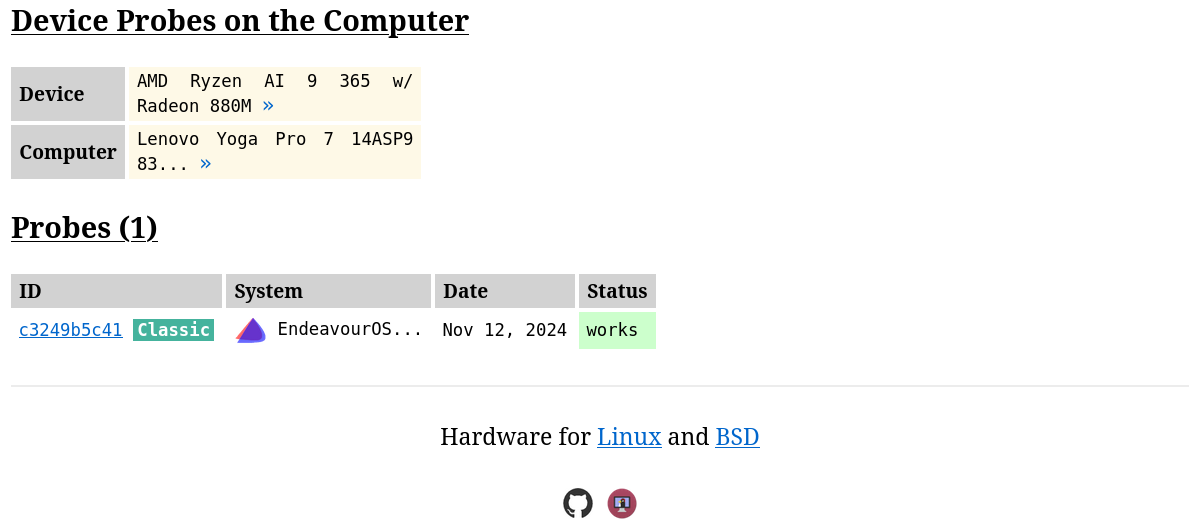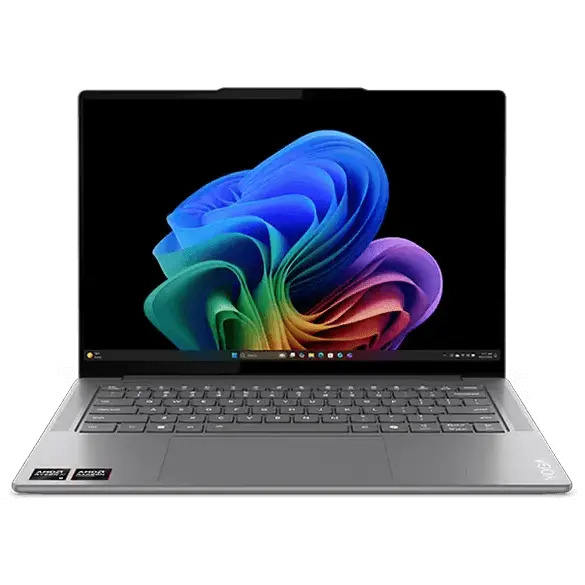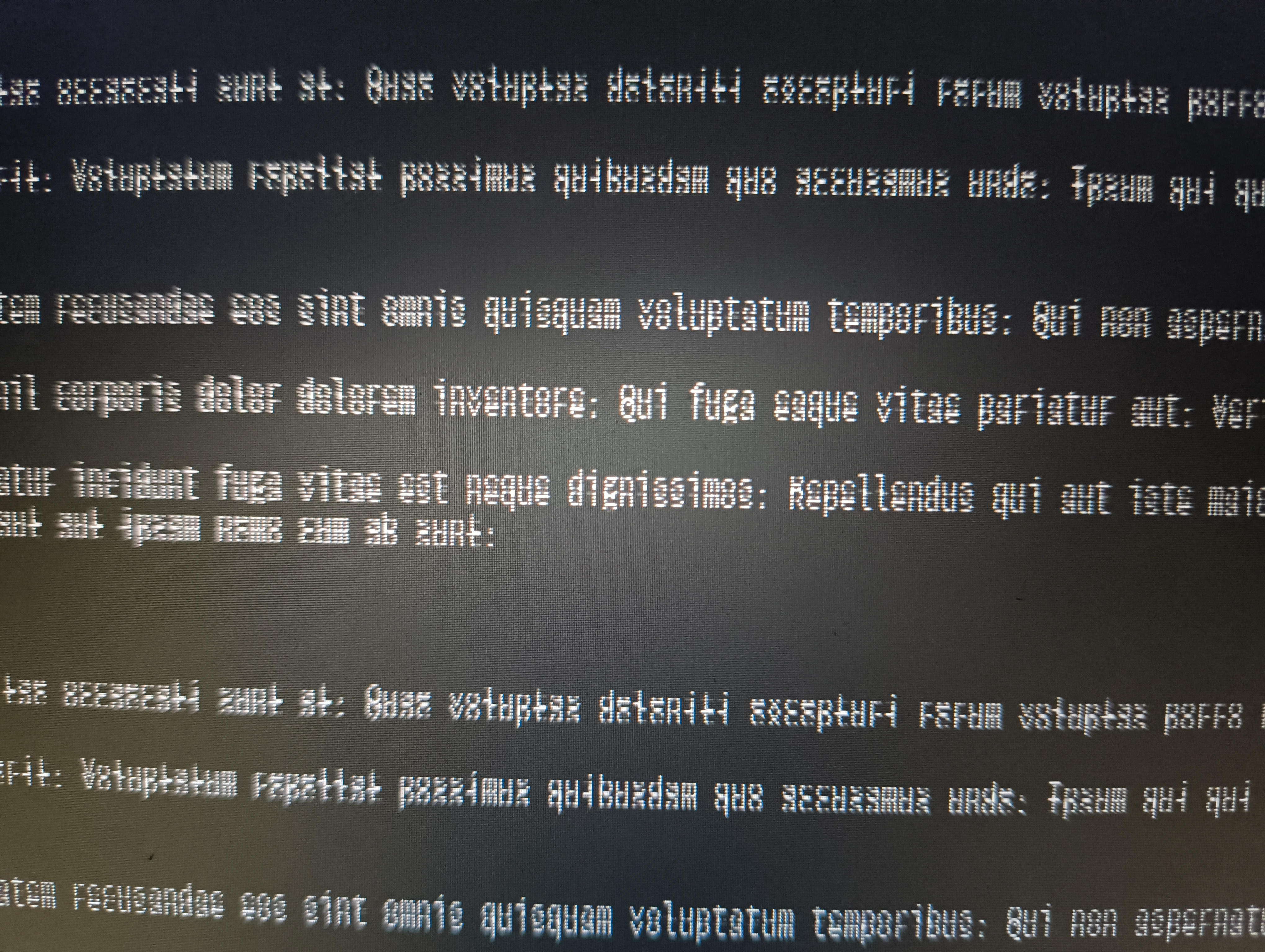The Strix Point is the code name for this generation of CPUs from AMD. Earlier gen was Hawk Point.
overgrown
I know, they are trying to put AI label on everything.
But does the new Ryzen AI 9 300 series work well with Linux? I have checked linux-hardware.org for a laptop that I was interested in.
Yoga Pro 7 Gen 9 (14, AMD):

Do you recommend this Yoga Pro 7 Gen 9 (14, AMD) laptop? Or should I go with Lenovo ThinkPad P14s (AMD) Gen 5 (with Ryzen 7 PRO 8840HS). Both are around the same cost and Yoga has better screen, new gen processor but this Thinkpad has better Linux support and arguably better build quality (I haven't owned a Thinkpad, so I cannot vouch).
Are you running linux on that G14? I am also looking at that P14s Thinkpad. Since it is tested on Arch linux (should work on EndeavourOS). What processor is on that Asus G14?
Package list
alsa-card-profiles
alsa-ucm-conf
alsa-utils
sqlite
npth
systemd-libs
libsysprof-capture
gnupg
file
systemd
pacman
archlinux-keyring
bash-completion
btrfs-progs
c-ares
dav1d
dkms
edk2-ovmf
ell
eos-translations
fastfetch
spirv-tools
glslang
libpipewire
pipewire
pipewire-audio
libwireplumber
wireplumber
pipewire-jack
libjxl
shaderc
libplacebo
pixman
ffmpeg
noto-fonts
firefox
flatpak
fluidsynth
fwupd
gst-plugin-pipewire
iwd
js115
js128
less
libbpf
libsynctex
libtool
openal
mpv
noto-fonts-extra
passt
perl-image-exiftool
pipewire-alsa
pipewire-pulse
pkgconf
plocate
pv
qt6-translations
qt6-base
qt6-declarative
qt6-multimedia-ffmpeg
qt6-multimedia
qt6-svg
qt6-wayland
sudo
systemd-resolvconf
systemd-sysvcompat
ttf-nerd-fonts-symbols-common
ttf-nerd-fonts-symbols
virtiofsd
webkit2gtk-4.1
webkitgtk-6.0
welcome
xterm
librewolf-bin
librewolf-bin-deb
Sorry for not clarifying. The screenshot is not my boot screen. The system boots up into EOS fine but only issue is the display's weird doubling effect. This screenshot is lorem ipsum text on a text editor to show my screen's state (I will clarify it on my post description). I did what you said, hooked up my laptop to an external monitor and everything looks fine on the monitor screen. So the issue is only with my Laptop's screen I guess. Also yes, the doubling glitch is present on the bootup screen, BIOS screen. Unfortunately I don't have timeshift.



This is getting ridiculous. Just when I thought I somewhat understood AMD's CPU lineup, I came across their new Ryzen 9000 series, launched a month after their AI 300 series release. I mean what is the point of having two lineups of CPUs?